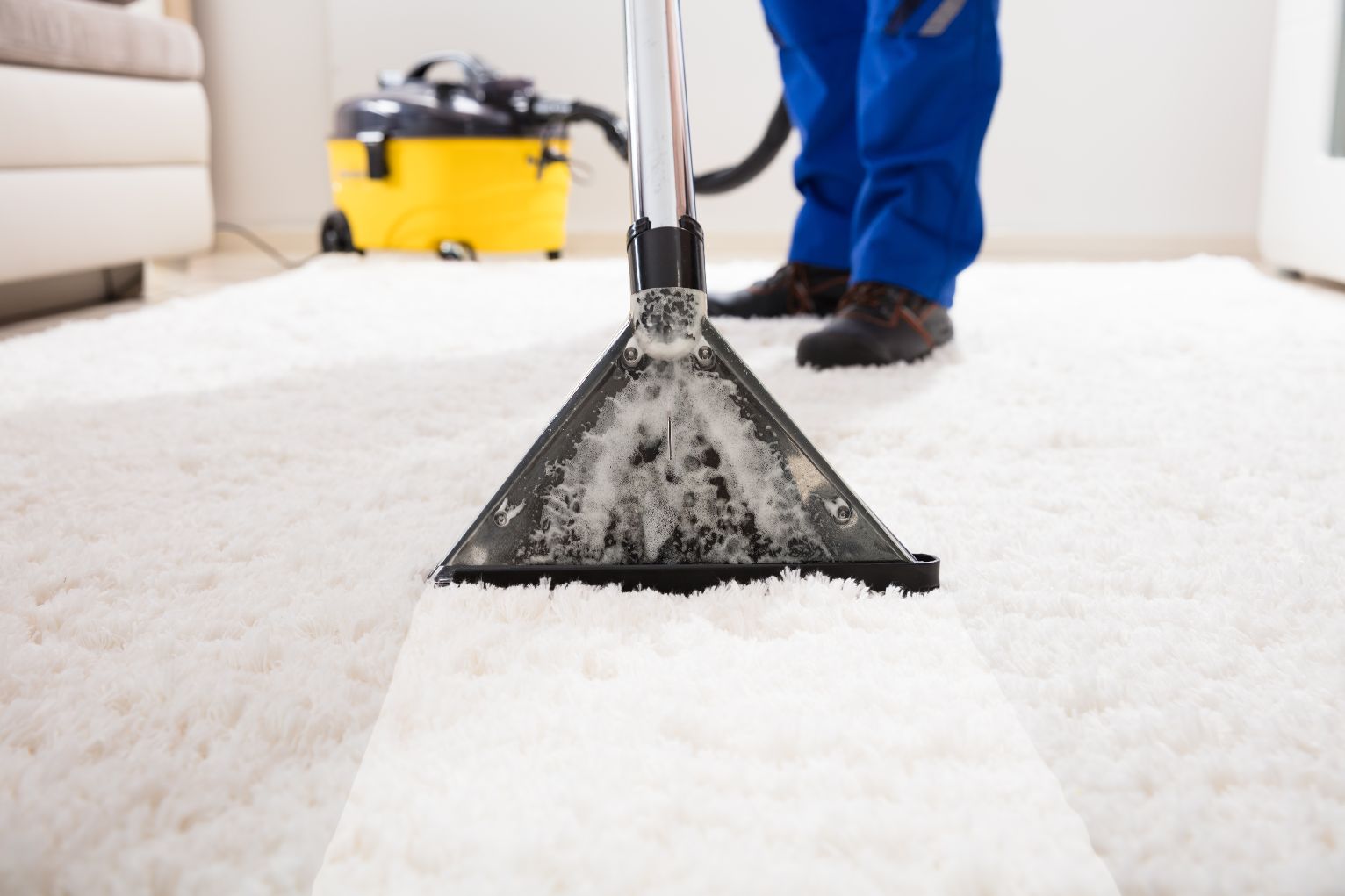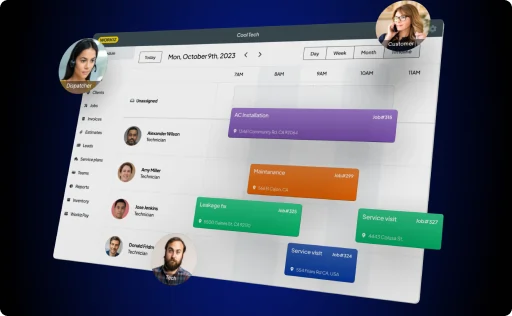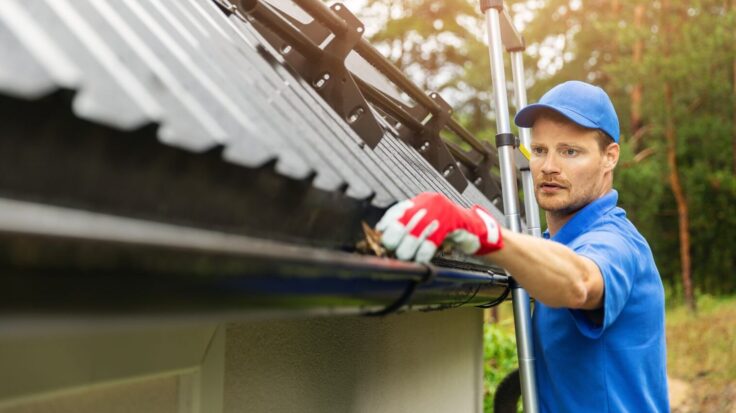If done correctly, your cleaning company can provide you with a stable source of income, as well as the potential for massive long-term growth.
You’ve probably never heard of Don Aslett. But Don’s story is nothing short of inspirational. The son of a farmer from Idaho, Don started his own modest cleaning company back in 1957. Today, thanks to Don’s hard work, this little company has grown to become Varsity Facility Services, a large organization that operates all over the U.S. and Canada. Don has been featured on Oprah and has his own successful range of cleaning products.
The lesson here is uplifting: starting a cleaning business can lead to something truly incredible if you go about it the right way. Don did it, and you can do it too.
Wondering how to start a cleaning business from scratch? Let’s jump right in!
Pros and cons of starting a cleaning business
When considering how to start a cleaning business, there are several pros and some cons, which it’s important to be aware of.
Pros
The pros of starting a cleaning business include:
- Constant demand: starting a cleaning business, whether a consumer or commercial cleaning (that is, for individuals and homes versus companies), means getting involved in an industry that is always in demand. As things get used – houses, offices, warehouses, and even tools and machinery – they get dirtier and require cleaning. Add to this seasonal wear and tear, such as brutal winters and boiling summers, and you can see why there is a constant demand for cleaning solutions.
- Relatively low setup costs: compared to many other capital-intensive businesses, starting a cleaning business does not require significant initial upfront payments – usually, between $2,000 and $6,000 is sufficient. Depending on the type of cleaning company you start, you can kick off with the minimum of materials and tools.
- Set your own hours: You can work as much or as little as you choose.
- Room for growth: because it’s your cleaning business, you can grow it – the more you put in, the more you get out. For example, you might find that demand exceeds your capacity after a while, and you need to take on new employees.
- Multiple cleaning types: there are many different cleaning businesses to start, from cleaning homes and offices to cold room cleaning or even cleaning hazardous material. Typical cleaning business types include:
- Carpet cleaning
- Office cleaning
- House cleaning
- Medical cleaning (specialized cleaning in hospitals, for example)
- Window cleaning
- Pool cleaning
- Window blind and shade cleaning
Cons
Cons of starting a cleaning business include:
- Manual labor: especially at the beginning of your business journey, you might have to do much of the heavy lifting – quite literally – yourself. Starting a cleaning business often means getting into hard-to-reach areas, carrying heavy equipment and materials, and moving large objects.
- Scheduling issues: it can be tough to manage new customer calls coming in a while simultaneously doing your work and staying organized. Add to this last-minute cancellations and emergencies, and you can quickly see that scheduling can be a challenge.
- Competition: any business has competition, but given the relatively low barrier to entry when it comes to starting a cleaning business, you’re going to come up against challengers from the outset. The good news is that in most areas, there’s more than enough business to go around. A lot will depend on your service area, that is, the specific areas where you provide your cleaning service. The more competitors in your service area, the more challenging it will be to outshine your competition.
- Seasonality: many cleaning businesses are affected by seasonality. Pool cleaners, for example, have a super busy period just before summer but can be idle throughout the winter. This can be mitigated by specializing in two types of cleaning that complement one another from a seasonality perspective.

How profitable are cleaning businesses?
If you’re considering starting a cleaning business from scratch, you probably want to know how profitable such a business can be. Well, cleaning businesses can be super profitable. Profitability depends on several factors, from the type of cleaning company you run to the area in which you operate, the structure of your business, and so on.
Here are a few examples of the money that can be made for different types of cleaning providers before taxes and other general business expenses.
A cleaning company owner makes, on average, $55,000 per year or $27 per hour. While this is the average, the salary can range from $16,500 to over $130,000.
Commercial cleaning is generally quoted at around 11¢ per square foot, although this will depend on the type of surface and the nature of the job. But taking this as an average, a 15,000-foot job would result in an income of $1,650. Bear in mind that from this will be subtracted your costs – labor, materials, insurance, and so on – and your markup.

How to start a cleaning business in 6 simple steps
We’ve looked at some compelling reasons to start a cleaning company. Now we’ll look at how to start a cleaning company. These 6 steps will get you launched from the initial idea to a proud cleaning business owner.
1. Do your research
The first step in considering how to start a cleaning business is the research phase. This phase is the most important and can make the difference between a good business and a great one. Your research should cover:
- Your own strengths and weaknesses
- The size of the market in your area, that is, the number of potential customers in the area in which you will be providing your cleaning service.
- Your competitors
- Key factors that will differentiate you from the rest; what makes you unique, what makes you stand out, and the reasons that customers would choose you over competitors
2. Prepare your business plan
Next comes your business plan. Here, you will lay out how much money you need to get started and how you’re going to access that capital. The amount of money you need to get started can range: from just a few hundred dollars for basic cleaning products to many thousands of dollars – for example, an automatic scrubber can cost over $14,000 before operating costs are taken into account. It would be best if you also tried to estimate your monthly income and expenses as accurately as possible in order to ensure that you always have enough cash flow. One thing to look out for is customers not paying immediately – this means that you have to foot the bill for your own expenses on the spot, while you don’t see money coming in for a while.
Try to work out what your breakeven point is in terms of time and customers. An excellent resource for business plans comes from the U.S. Small Business Administration.
Business plans also make it easier to bring investors on board, as they show the projections and prospects of your business, as well as the fact that you have thoroughly done your research.
3. New business opportunities
Deciding to start your cleaning business is one thing. But now what? In most cases, customers won’t be lining up at your door. You have to be thinking about how you can generate new business and spread the word about your company. Today, a critical marketing element is the rating websites (Google Reviews, Yellowpages, Yelp, and so on). These websites list all the providers in an area, along with star ratings and comments from real customers.
It’s essential to make sure that your ratings here are as high as possible, but don’t push it too hard and buy fake reviews that might backfire on your business reputation. Similarly, having up-to-date social media pages or a website (or ideally, both) is a huge boon for your new cleaning business, especially for young clientele looking you up online.
4. Get paperwork in order
You’ll want to make sure that everything from a legal perspective is up-to-date. This means everything from registering your business to registering for tax, obtaining any necessary certifications and approvals, and ensuring you have sufficient insurance should something go wrong. While you can run your business as a sole proprietor, many experts recommend registering a limited liability company (LLC) to ensure that no one can come after you legally in your personal capacity. When looking at how to start a cleaning business from a technical and legal standpoint, it’s recommended to consult with professionals.
5. Launch with a bang
The excitement will be building as you approach launch day! Leverage your launch to create as much buzz as possible. This could be being featured in the local newspaper, offering to clean a school or other community institution for free, or just ensuring the highest level of professionalism and care for your first customers. When it comes to starting a cleaning business, word of mouth is like gold. Your first few jobs can set your trajectory for years to come, so make sure you’re fully prepared and ready for them.
6. Stay organized
The difference between a highly successful cleaning business and a moderately successful one isn’t what most people think. It’s not about who cleans better or who has the shiniest and latest equipment. It’s all about who can stay organized. Customers value an organized business and love dealing with someone who is reliable. Being organized also means calling customers before they have even thought of engaging a cleaning service – such as on the anniversary of their last job – as well as the mundane tasks that come with running a business, such as scheduling jobs effectively, managing calls, sending estimates…you know the drill.

Final thoughts
Figuring out how to start a cleaning business from scratch can be daunting but also exciting, considering the revenue potential and the thought of creating something of your own. But following a step-by-step plan, you can launch your successful business in a relatively short amount of time – for example, a window cleaning business can be set up in under a week. The potential upside is significant: you can be a proud business owner, employing your own team and putting a smile on customers’ faces every day.
It is staying organized that separates success from failure. Use whatever means necessary to appear accountable to your clients. When your team grows or managing your operations becomes too much to handle, consider giving Workiz a try.
This easy-to-use platform is the secret sauce to the success of hundreds of thousands of service professionals. With Workiz, you have a partner in getting and staying organized, from scheduling to getting paid and everything in between. It literally saves the time that you need to manage your business while booking more jobs and making more money. And the best part? Workiz can be fully customized for cleaning businesses, meeting all your needs in one place. Give it a 7-day free trial to see for yourself!










